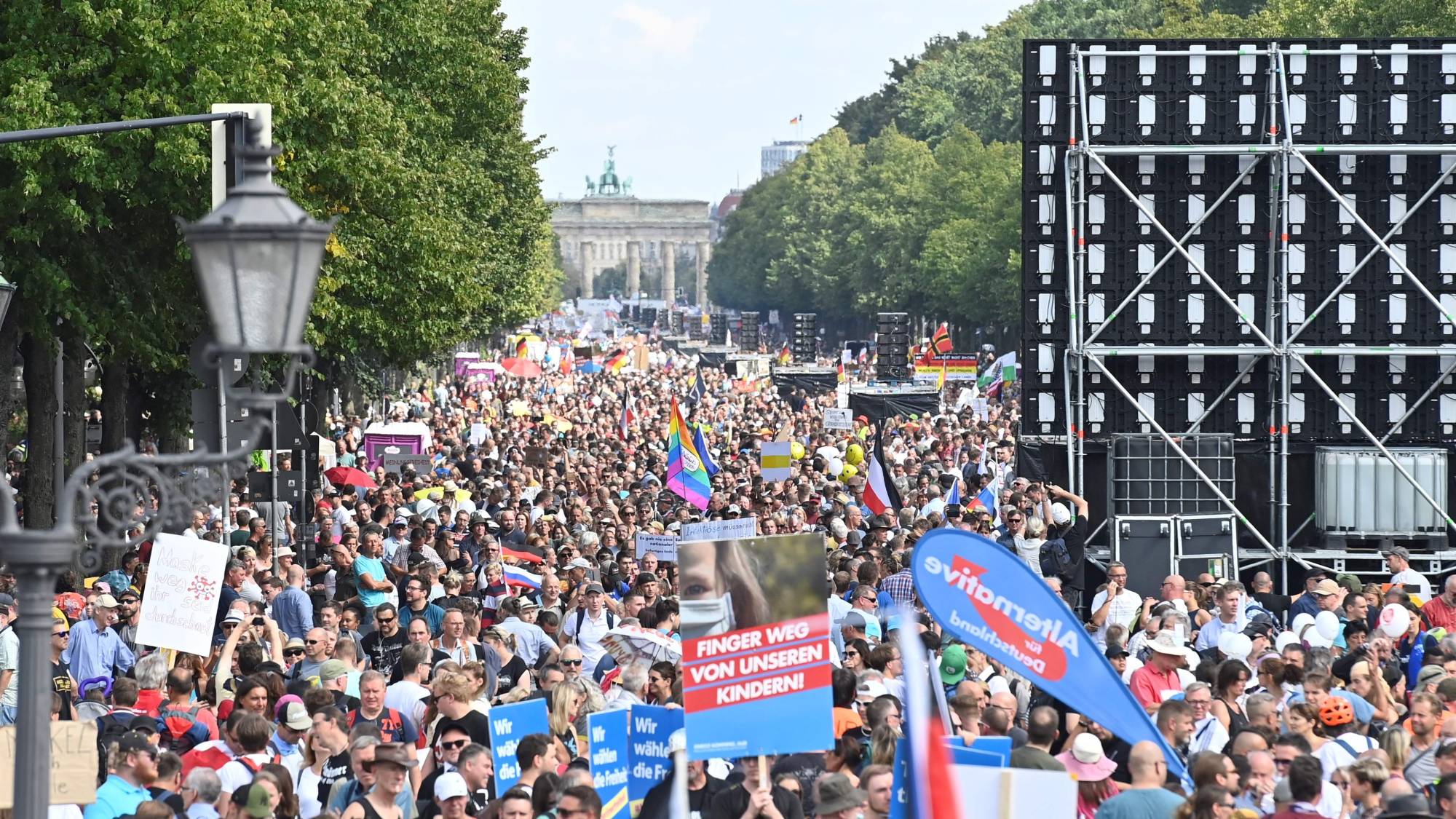The "right of the people peaceably to assemble,” as the U.S. Constitution’s first amendment calls it, is one of the pillars of liberty. That’s why all liberal democracies guarantee and protect it in some form. But is this right absolute? Could there be, in well-defined cases, a liberal case for abridging it?
This timeless question has just become newly urgent. As I warned might happen, the COVID-19 pandemic has, directly or indirectly, increased social turmoil in many countries, leading more people to assert their right to protest. But as the very different circumstances in Belarus, the U.S. and Germany showed again last weekend, what counts as a primal scream for freedom in one gathering easily turns nefarious and anti-democratic in another.
In Belarus, the protesters are indeed heroes deserving the sympathies of freedom lovers all over the world. Since a fraudulent election on Aug. 9, they’ve been bravely marching as their benighted dictator, Alexander Lukashenko, stomps around carrying an automatic rifle and keeps his thugs ready to bludgeon his critics. Types like him disdain freedom of thought, speech or assembly. That’s why philosophers since John Stuart Mill have considered these rights essential.



















With your current subscription plan you can comment on stories. However, before writing your first comment, please create a display name in the Profile section of your subscriber account page.